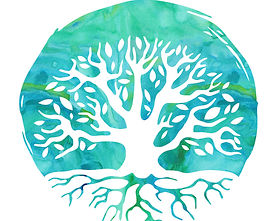
6636 E. Carondelet Dr.
Tucson, AZ 85710
phone: 520.298.3383
fax: 520.207.5475
CALLIE PEDIATRICS
Caring for families since 1973
Hours: M-F 8 am-5 pm
Map & Directions
Dear parents/caregivers:
• All Questionnaires are available on the Portal TWO WEEKS BEFORE your child/teen's well visit, so you can complete them thoroughly and thoughtfully, and our providers can review your responses before the day of the visit.
• Your observations and experiences are ESSENTIAL in providing the best care for your child.
NOTE: Because of the importance of these screenings, incomplete questionnaires will need to be completed in the waiting room, before moving to the exam room.
The WHY:
In 2021, Callie Pediatrics made the decision to move from paper to online questionnaires and screeners, and to use a service called Child Health and Interactive System (CHADIS).
What most drew us to this service is 1) CHADIS was founded by and continues to be run by developmental pediatricians who know screening and 2) CHADIS interfaces with our Patient Portal and enables Callie Pediatrics to assign questionnaires based on the age and needs of the child. CHADIS also automatically uploads the results to our health record and provides almost instantaneous feedback for providers. For parents/ questionnaires, questionnaires are available up to two weeks before the visit. We are now completely online (paperless!)
I. Why screenings and questionnaires in the first place?
As a Zero-to-Three HealthySteps practice, with support from Arizona’s First Things First, Callie Pediatrics
seeks to be a pediatrics leader, for the benefit of all children and families. We are fully committed to universal screenings (developmental, social-emotional, mental health, family needs) of our all our babies, children, and teens, from newborn through early adulthood.
Early childhood screening is essential:
-
The American Academy of Pediatrics (AAP) recommends that all infants and young children be screened for delays as a regular part of their ongoing health care.
-
The American Academy of Neurology (AAN) and the Child Neurology Society (CNS) call for screening at all well-child visits from infancy through school age and “at any age thereafter if concerns are raised about social acceptance, learning, or behavior.
-
The Center for Disease Control (CDC)’s national campaign Learn the Signs. Act Early encourages parents to monitor their child’s development, participate in developmental screenings, and share any concerns early.
Child and Adolescent screening is essential:
In the United States, according to the CDC, about 1 of 6 children/teens struggle with a mental, emotional, or behavioral condition. For children, the most common conditions are anxiety, depression, behavior problems, and ADHD; for adolescents, the concerns are depression, suicide, and substance abuse. Screening for these concerns and problems helps us to detect, treat, and support those children and teens, many of whom could go unnoticed if not. Adverse childhood events are also associated with a child’s physical and mental health.
Questionnaires also provide us with valuable information that helps us to support you in keeping your children safe and healthy, to understand where you are coming from (family medical history, adverse experiences) and your challenges and needs today.
II. Why online (not paper?): Benefits for parents/caregivers:
1) With online questionnaires, you can fill out questionnaires on your own time, BEFORE the appt day (save and then return). No more coming early, racing to finish, or juggling paperwork!
2) You get more time to think through screening questions and your responses. "Ages & Stages" (ASQ-3), for example, asks questions that help you understand your child's development and know what to look for next. Staying Healthy Assessment questionnaires help you think about your child's safety, health, and wellness (nutrition, physical activity, screen time).
3) Overall, your responses help providers prepare for the visit and track your child's growth, development and well-being.
Thank you for your time, care, and kindness!
Callie Pediatrics
